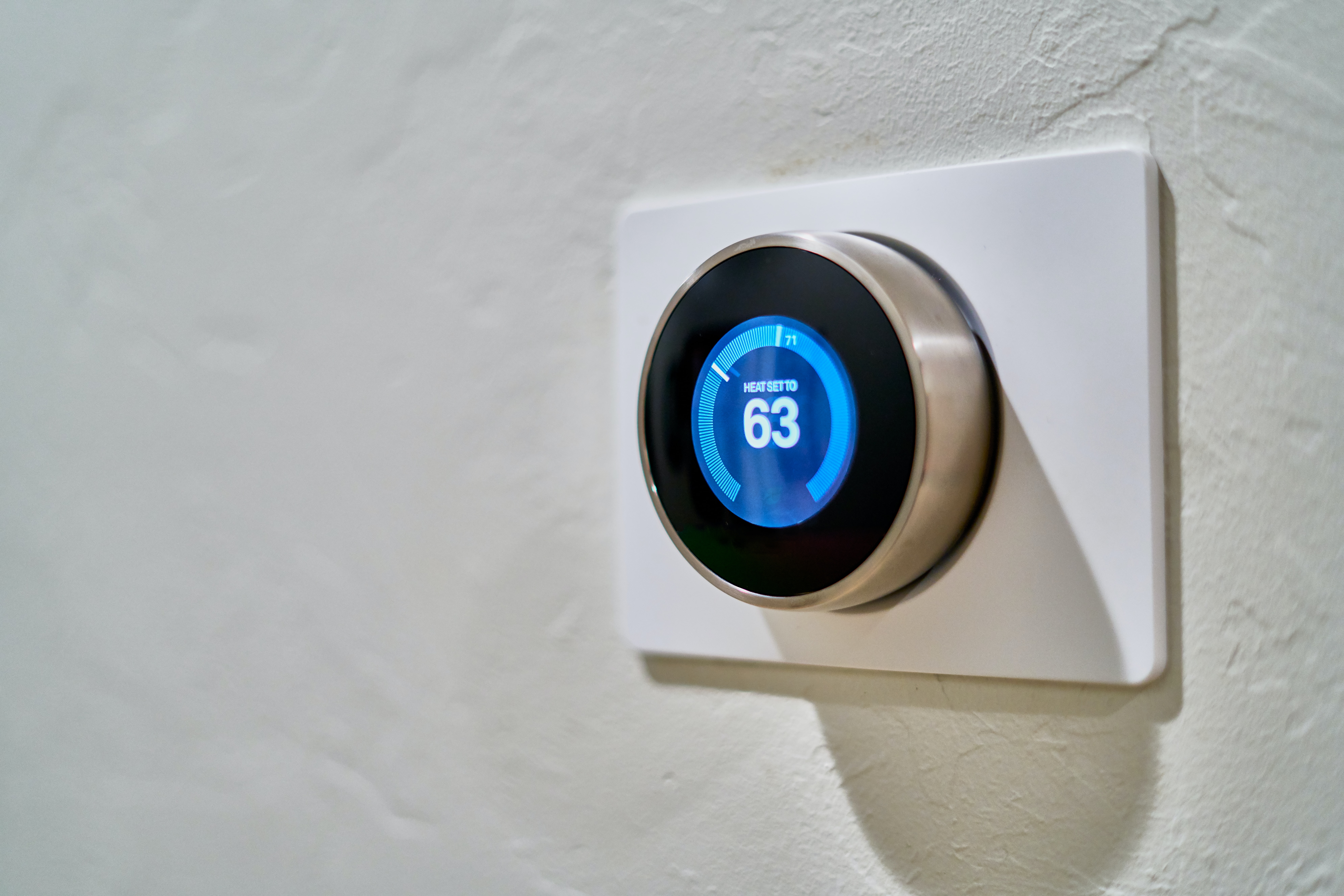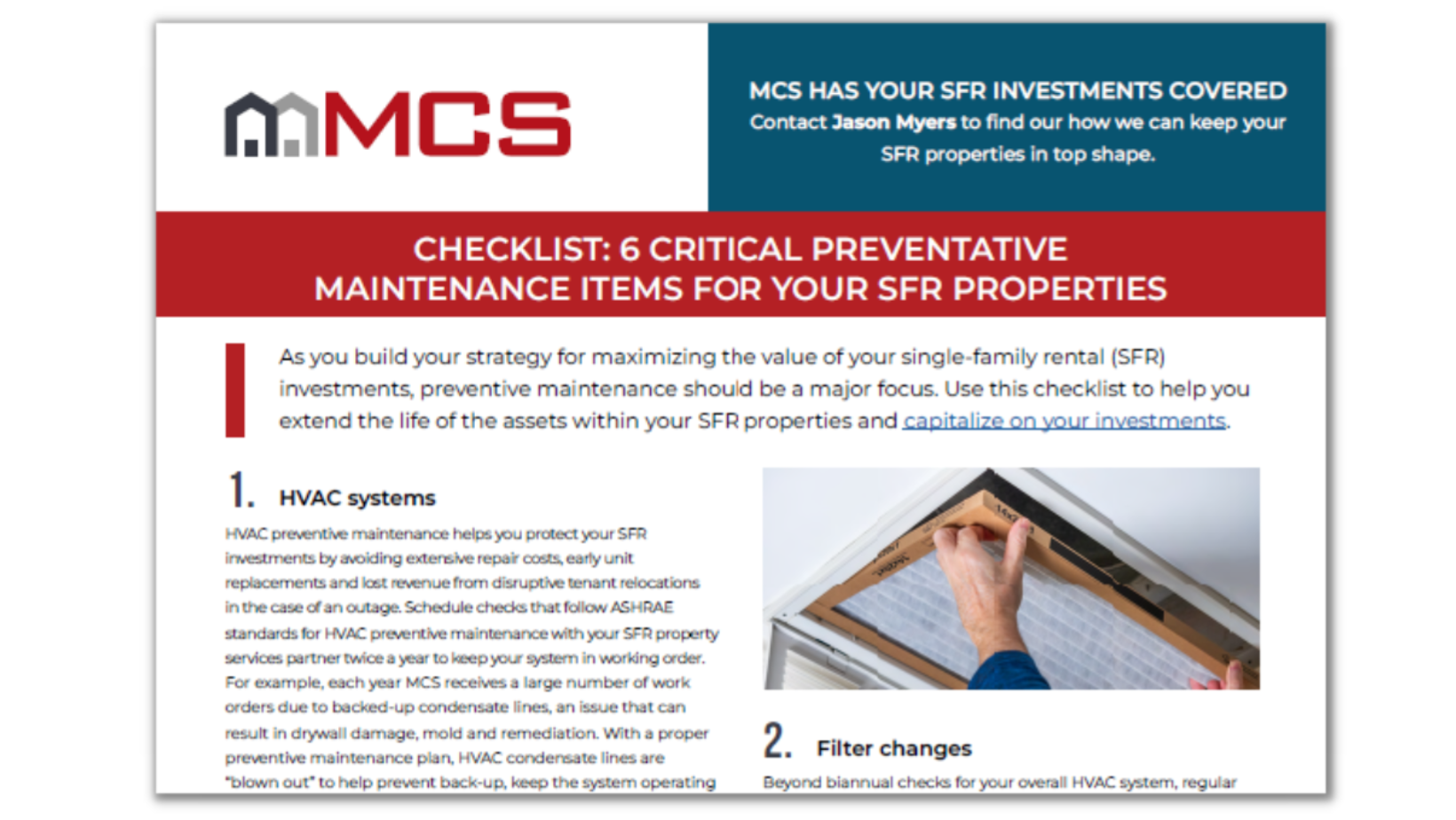7 Ways to Drive Home Energy Savings for Your Single-Family Rentals

Conserving energy isn’t just good for the environment. Being smarter about energy use yields home energy savings—no matter who’s paying the bill—while enhancing the value of your rental properties. Here are seven ideas to help you cut energy costs on your single-family rental (SFR) properties.
Home energy audit
The best way to cut energy costs is to first determine your baseline. An energy audit can provide this information. You can work with a certified auditor to evaluate your properties and identify and prioritize potential improvements, or you can opt for a DIY energy assessment.
It’s also worth noting that assessments aren’t just for older properties. Energy technology has improved significantly in just the past few years—evolving faster than the training that even many trusted builders currently have.
Energy-efficient appliances
Your best bet for achieving home energy savings via appliances is to upgrade them to products with an ENERGY STAR label when they break down or age out. This goes for everything from microwaves and dishwashers to hot water heaters, stoves, washers, dryers and refrigerators. In fact, the U.S. Department of Energy estimates that you could save hundreds of dollars annually by replacing a 10-year-old refrigerator with a new ENERGY STAR model.
A company like MCS can conduct an inspection and audit of your current appliances, creating a database that includes details for each item such as its ENERGY STAR rating, make/model and serial number, as well as provide a life-of-product estimate and recommendations for newer energy-efficient options.
Smart thermostats
Smart thermostats can help you gain more oversight over the energy use in your SFR properties. Systems vary, but most enable users to use an app on their phones to track and manage home energy data and adjust the temperature even if they aren’t in the home. Giving renters the ability to adjust the thermostat from their phones can lead to lower energy bills for them and reduce the stress on your air conditioning units. Small changes can add up, too, with savings of up to 10% each year on heating and cooling by reducing the temperature 7 to 10 degrees for eight hours a day in the fall and winter and raising it in the spring and summer months.
HVAC preventive maintenance
Heating and air conditioning account for nearly half of residential electricity consumption, so keeping your HVAC system in top condition is smart for both conserving energy and prolonging its life. Schedule regular checkups for preventive maintenance at least twice a year with your property services partner, and put them in charge of filter changes as well. This proactive combo can help prevent damage to your system and avoid costly emergency repairs as well as deliver home energy savings.
Smart meters
The ability to monitor energy usage in nearly real time isn’t a futuristic notion—it’s already here, thanks to smart meters. Installing these gauges can allow your properties to communicate with their respective utility providers, improving reliability through faster responses to outages. You can also enhance efficiency in your systems by getting a better handle on residential usage and how to make changes to lower costs.
Window upgrades
Windows are responsible for about 25% to 30% of a home’s energy use, so upgrading them can be a priority that pays off in the long run. If it’s time for your windows to be replaced, this is a perfect opportunity to move to more energy-efficient models. But if your windows are still in good condition, you can make strides in energy efficiency through smaller upgrades like eliminating air leaks, caulking and weatherstripping, applying solar window films and replacing window coverings with more energy-efficient options.
Insulation improvements
Are your SFR properties well insulated? This one measure can help reduce energy use, make the interior of your homes more comfortable for tenants (and thus reduce temperature complaints) and deliver home energy savings of up to 10%. Before making improvements, have a professional check for air leaks as well as assess the insulation levels in your walls, attic, basement and crawlspace to help determine a property’s needs and priorities.
No matter how your rental agreements are structured, making improvements with the goal of home energy savings in mind can have long-term benefits for both you and your tenants. Energy costs go down (a draw for many renters), and you can lengthen the life of your HVAC system. Simple changes add up over time, and a good property services partner can help you determine the most strategic green upgrades for your properties.
Are you looking for a new partner to handle maintenance on your SFR properties? Contact Jason Myers at MCS to find out how we can help you achieve savings through regular inspections and proactive maintenance, without sacrificing quality or tenant experience.



